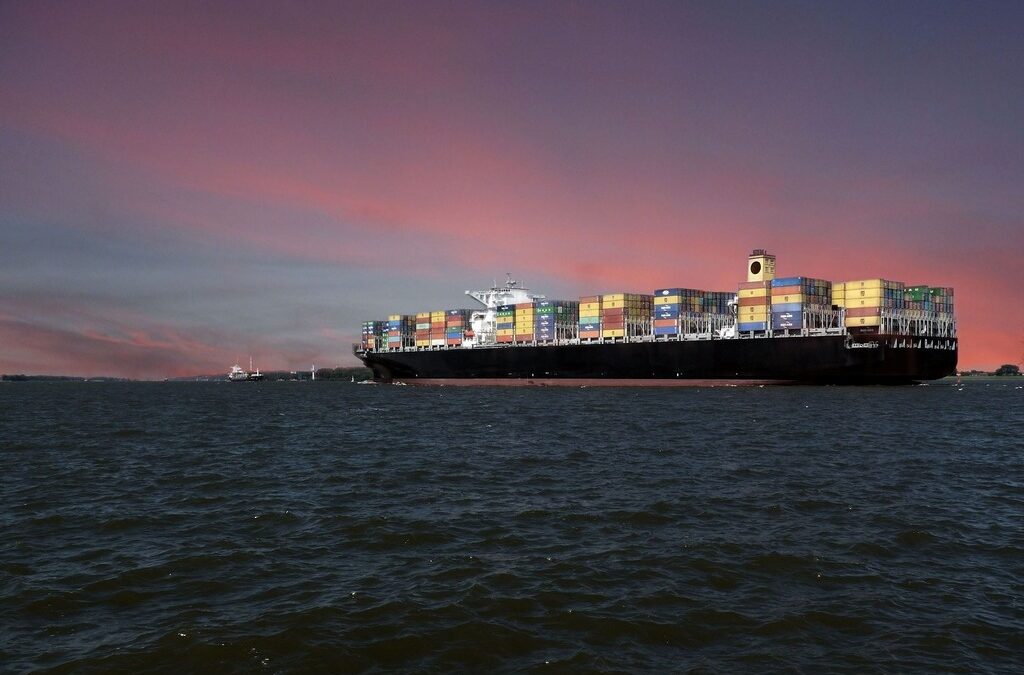On 19 February, the EU launched EUNAVFOR Aspides. The objective of this defensive maritime security operation is to restore and safeguard freedom of navigation in the Red Sea and the Gulf. European shipowners united in ECSA welcome the operation.
Operation Aspides will ensure an EU naval presence in the area where numerous Houthi attacks have targeted international commercial vessels since October 2023. In close cooperation with like-minded international partners, Aspides will contribute to safeguard maritime security and ensure freedom of navigation, especially for merchant and commercial vessels.
Within its defensive mandate, the operation will provide maritime situational awareness, accompany vessels, and protect them against possible multi-domain attacks at sea. The operation headquarters will be based in Larissa, Greece.
The operation will be active along the main sea lines of communication in the Baab al-Mandab Strait and the Strait of Hormuz, as well as international waters in the Red Sea, the Gulf of Aden, the Arabian Sea, the Gulf of Oman, and the Persian Gulf.
According to Dutch public broadcaster NOS, Germany, France, Greece and Italy have already pledged their support for the mission. According to a spokesperson of the Ministry of Foreign Affairs, the Dutch government is still investigating whether it will contribute and if so, in what form.
Also read: ‘Severe disruption due to Red Sea crisis will remain’
Restoring maritime security
Operation Aspides will coordinate closely with the EUNAVFOR Atalanta to contribute to maritime security in the West Indian Ocean and in the Red Sea, as well as, with like-minded partners contributing to maritime security in its area of operation.
‘With the launch of EUNAVFOR Aspides, the European Union is responding swiftly to the necessity to restore maritime security and freedom of navigation in a highly strategic maritime corridor,’ says Josep Borrell, High Representative for Foreign Affairs and Security Policy. ‘The operation will play a key role in safeguarding commercial and security interests, for the sake of the EU and the wider international community.’
‘European shipowners strongly welcome today’s announcement, which officially launched the new European maritime security operation in the Red Sea,’ says Sotiris Raptis, ECSA’s Secretary General. ‘The escalating situation in the area puts our seafarers in danger on a daily basis and is increasingly impacting Europe’s supply chain and overall economic security. European presence in the area through the deployment of Operation Aspides is essential to address the security risks for commercial shipping and will contribute to keeping our seafarers safe. We encourage and support all coordinated efforts, including diplomatic, contributing to the de-escalation of the crisis in the area.’
Also read: US, UK, Netherlands and others to protect ships in Red Sea
Houthi attacks and EU response
Since October 2023, numerous Houthi attacks have targeted vessels in the Red Sea, the Gulf of Aden, the Arabian Sea and the Gulf of Oman. The Houthi militia in Yemen have said the attacks are in response to the conflict in Gaza. Major shipping companies are now avoiding the area altogether and are rerouting around the Cape of Good Hope, thereby increasing sailing time and emissions.
According to the EU, the attacks jeopardise the life of civilians on merchant and commercial vessels, and constitute a breach of the freedom of the high seas and of the right of transit passage in straits used for international navigation enshrined in United Nations Convention of the Law of the Sea.
On 10 January 2024, the UN Security Council adopted Resolution 2722 (2024), condemning in the strongest terms the Houthi attacks on merchant and commercial vessels; underscoring the importance of the exercise of navigational rights and freedoms of vessels of all states in the Red Sea, including for merchant and commercial vessels transiting the Baab al Mandab Strait.
On 29 January 2024, the Council approved a Crisis Management Concept for a possible EU maritime security operation to safeguard freedom of navigation in relation to the Red Sea crisis, with an initial duration of one year from when it is launched. The operation was formally established on 8 February 2024.
Also read: Maersk continues to re-route around Cape of Good Hope








